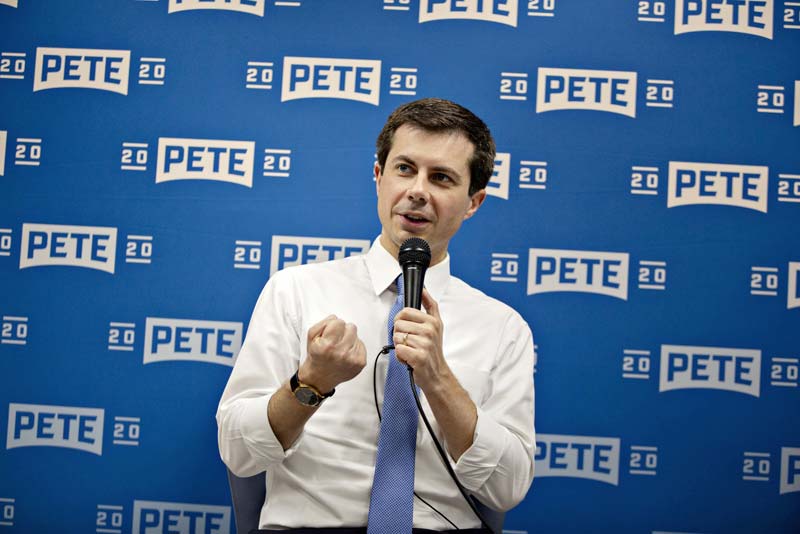 Daniel Acker for Bloomberg
Daniel Acker for Bloomberg
Treacle like this has been a mainstay of presidential candidates for decades. But is it true? Or even possible? And if so, is it desirable?
The answer to all three questions is no.
Buttigieg's description of a president's job appears nowhere in the
Listen to the
It's not just
In 2008, Obama won the presidency on a vow to unify the country. Did he succeed? If he had, we wouldn't have seen the tea parties or the election of
Speaking of Trump, he too tried to make the case for national unity. "It is time to remember that old wisdom our soldiers will never forget," he proclaimed in his inaugural address, "that whether we are black or brown or white, we all bleed the same red blood of patriots, we all enjoy the same glorious freedoms, and we all salute the same great American flag."
But here's the thing: Trump's florid nationalist touches seemed unifying -- to Americans sympathetic to his agenda. But they horrified many Americans opposed to it in equal measure.
That's the rub.
Right now, on the left and the right, politicians, activists and intellectuals are trying to marry sweeping policy proposals to what
But politics in a republic is almost never about unity. Rather, politics is the art of negotiating differences. Democracy is about disagreement, not agreement. When politicians say "the time for debate is over" or "let's put politics aside," they're really saying "shut up" to those who disagree.
Americans discard political disagreement for the sake of unity only when confronted with extra-political emergencies. When the country is attacked or when there's a grave national disaster, the nation rallies around a specific goal. At all other times, a democratic nation is in glorious disagreement about what the government should do. Factions argue for their desired policies against other factions.
The place where most of this fighting is supposed to resolve itself is
What are presidents supposed to do amid all the bickering? The answer lies in the job title: They're supposed to preside over it. The president doesn't get his or her way; the president gets to either sign off on or veto legislation. After that, the job is to faithfully execute the law.
There's an epidemic of angry confusion on this point, and it's making our politics uglier because presidents and partisans try to mask ideological victory in platitudes about political togetherness. When "my" team is in power, the dissenters are enemies of national unity, which is just a clunky way of saying "unpatriotic."
This is why "dissent is the highest form of patriotism" is an argument that only the losers of the most recent election subscribe to, and why our politics get uglier with every presidential election.
Liberty-loving columnists delivered to your inbox. FOR FREE. Sign up for the daily JWR update. Just click here.
(COMMENT, BELOW)


 Contact The Editor
Contact The Editor
 Articles By This Author
Articles By This Author